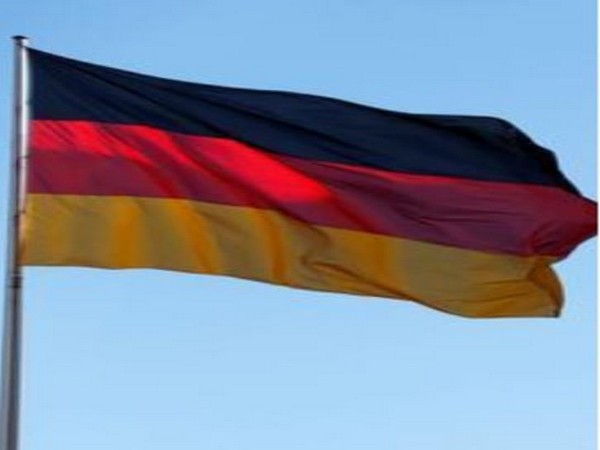At Polish border, German police crack down on illegal crossings
Oct 13, 2023
Berlin [Germany],October 13: It's early morning when 30-year-old Syrian Adem Ahmed walks across a railway bridge that starts in Poland and ends in Germany. Moments later, he and 21 fellow Syrians are detained by German federal police, after the government stepped up border checks to combat a surge in illegal migrant crossings. "The smuggler who was supposed to drop them off in a lorry on German soil probably fled when he saw the police and left them on their own," said federal police spokesman Jens Schobranski.
The dawn police operation witnessed by AFP took place in the border town of Forst this week, in Germany's former communist east. Berlin announced in early October it was increasing police checks along its borders with Poland and the Czech Republic to crack down on popular smuggling routes. A surge in arrivals in recent months, mainly from Syria and Afghanistan, has reignited a fierce immigration debate in Germany with local authorities saying they are overwhelmed by the number of asylum seekers.
The influx has fuelled support for the far-right, anti-immigration Alternative for Germany (AfD) party, which made major gains in two regional elections this month. The number of people coming to Germany "is too high at the moment", Chancellor Olaf Scholz said recently, vowing to speed up the deportation of failed asylum seekers. Last month alone, some 2,000 people illegally crossed into Brandenburg, one of the three German states bordering Poland. "The only time we had a higher monthly figure in this region - 3,014 people-was in October 2021" when Belarus' borders were wide open, said Schobranski.
Since then, Poland has erected a border fence with Belarus. Originally from the Syrian city of Idlib, Adem Ahmed lived in Turkey for the past eight years after leaving his war-torn country. Speaking to journalists near the border, the fatigue etched on his face, Ahmed said it had been "difficult" living alone in Turkey. "I want to be reunited with my family" in Germany, he said. Like his fellow travelers, including a child and a teenager, Ahmed said he "went without food for the last three days" of his journey. Before that, he had been eating "dates and nuts".
Ahmed followed the so-called Balkan route to get to Germany via Poland, travelling through Bulgaria, Serbia, Hungary and Slovakia. Unlike the checkpoints on the German-Austrian border-prompted by the 2015-2016 migration crisis that brought more than a million asylum seekers into the European Union's largest economy-there are no fixed controls on Germany's frontiers with Poland or the Czech Republic. The latest migrant flows have put renewed pressure on the EU's open-borders Schengen zone, which normally allows for free movement.
Poland, the Czech Republic and Austria also recently introduced checks on their borders with Slovakia. After their mobile phones are temporarily confiscated for analysis, Ahmed and his fellow migrants, most of whom have no papers, are interviewed before being sent to reception centers. Sometimes the encounters with police are more dramatic. Two weeks ago, a Syrian smuggler "forced his way through a roadblock and caused an accident" while carrying passengers, said Schobranski. To stop illegal transports, police use road spikes to puncture tires.
"Usually, if it's their first arrest, the smugglers are given a suspended sentence of between one and three years," said Forst police commissioner Frank Malack. "What really frightens them is being sent back to their own country," he added, as many are asylum seekers themselves. Police have caught as many as 10 smugglers over two days since the checks were stepped up, said Schobranski. Many of them are Ukrainians at the moment, trying to earn money quickly and avoid military service at home, he said. Georgian nationals make up the second-largest number of smugglers in the area.
Like other asylum seekers, they don't have the right to immediately work in Germany, but often still need to pay back the money they borrowed for their own passage, according to Schobranski. Migrants pay between 3,000 and 10,000 euros ($3,200-10,500) to be smuggled into Germany, he added. If they are promised as many attempts as it takes to cross successfully, "it's more expensive". Germany recorded over 250,000 asylum requests in the year to September, more than for the whole of 2022. The country is also hosting more than a million Ukrainian refugees. - AFP
Source: Kuwait Times








